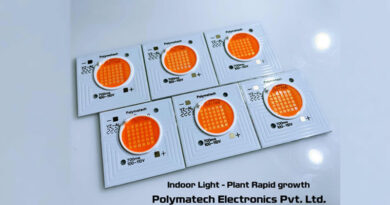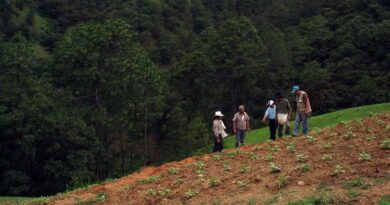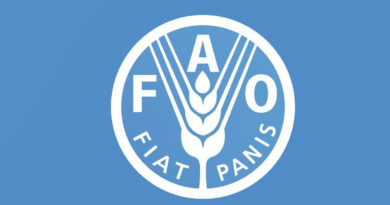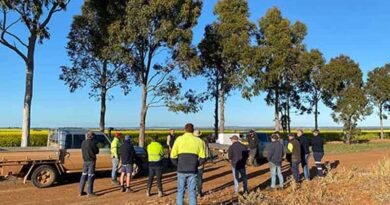Food security rests on the growth of farming indoors
14 October 2022, UK: “In terms of food production though, for crops at least, there are some bright spots on the horizon. At the Advanced Plant Growth Centre (APGC), we have explored the science and are now realising the potential and impact of growing crops such as vegetables and fruit, indoors. This type of farming, known as total controlled environment agriculture (TCEA), offers up the chance to grow tasty food which could also be nutritionally enhanced all year round, thanks to specially controlled lighting and greatly reduced water and fertiliser requirements”
This article first appeared in The Times Thunderer column on 10th October
By Professor Derek Stewart, Director, Advanced Plant Growth Centre, the James Hutton Institute
As a crop scientist with over 30 years’ experience in the research and also industry sectors; I’ve never been more worried about the security of our food supply than I am currently.
The past 12 months has been a period of accelerated and disruptive change with Brexit leading to reduction in both imports and exports, 25% and 18% respectively on pre-Covid 2019 levels. Allied to this, fertiliser prices have soared due to surging input costs and we’ve experienced supply disruptions due to sanctions on Belarus and Russia. The war in Ukraine has also impacted fears around supplies of food staples and, as a final denouement, this summer, Europe and the UK have been hit with a prolonged heatwave that has had a severe impact on our food production and security.
This has all contributed to a rise in the cost of food (as well as how we actually cook it) and I fear we are reaching an impasse on how we feed people. Food security in the UK is at an all-time low: indeed. In 2021 the UK Government identified the UK produces less than 60% of its domestic food consumption by economic value.
We cannot keep on producing food in the same way as we always have and expecting different results.
It is increasingly evident that we need significantly more productive systems for food production and that these systems need to be more sustainable and at the very least, environmentally safe. Climate change is not going away and we are simply not doing enough to decelerate its progression.
In terms of food production though, for crops at least, there are some bright spots on the horizon. At the Advanced Plant Growth Centre (APGC), we have explored the science and are now realising the potential and impact of growing crops such as vegetables and fruit, indoors. This type of farming, known as total controlled environment agriculture (TCEA), offers up the chance to grow tasty food which could also be nutritionally enhanced all year round, thanks to specially controlled lighting and greatly reduced water and fertiliser requirements.
If we adopt TCEA powered by renewable energy, best exemplified in vertical farming, we can increase the reliability of food supply with a significantly reduced greenhouse gas emission footprint compared other like-for-like food production systems.
We now have the tools and technology within our grasp to transform the production of crop-based food. Also, the uplift in renewable energy, particularly in Scotland which has around 96% renewable electricity, means we can make a significant and sustainable impact on our reliance on imported vegetables and fresh produce, which was valued at £2.5Bn in 2020 in the UK, and could positively impact food security.
The adoption of new technology represents change and is not always universally welcomed: we hear and acknowledge this, but with the hard evidence being generated on the potential of vertical farming, we need to pull together the food and energy sectors, invest in this new type of farming and lead the way globally in terms of sustainable food production.
Also Read: Indian farmers are using less agrochemicals shows data for FY2021-22
(For Latest Agriculture News & Updates, follow Krishak Jagat on Google News)















